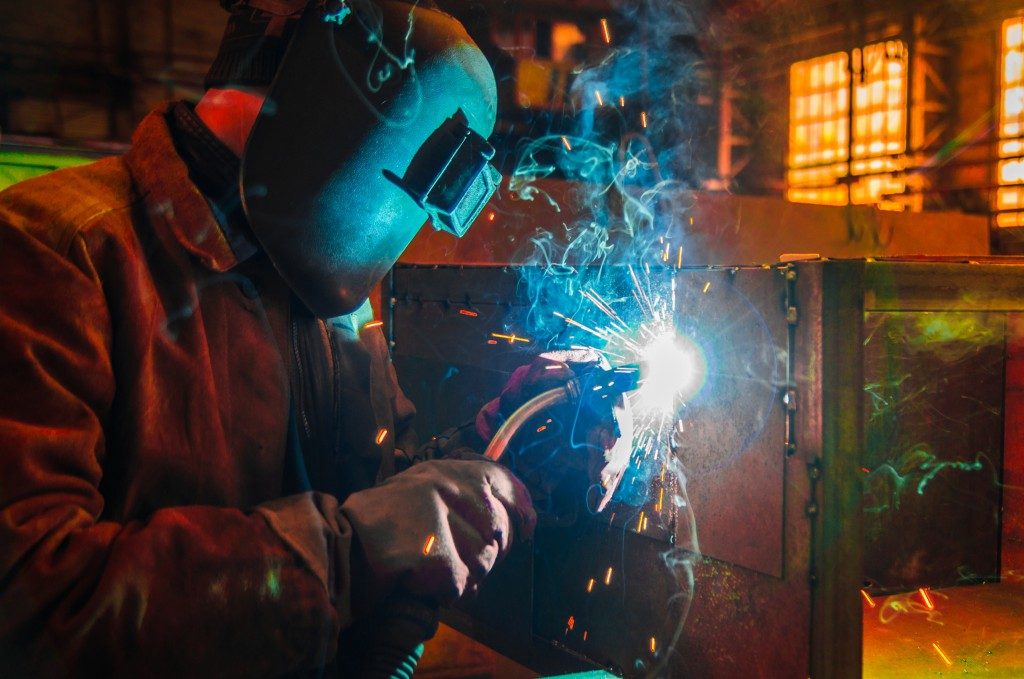Your father asked you to go to the hardware store to get a roll of stainless-steel MIG wire. He’s working on a project in his garage workshop. You’ve been around him for as long as you can remember. You like to watch him work. When you were a kid, you used to tell your dad that he looks like a superhero once he puts on his welding helmet.
Watching him work and those light moments you shared made a real impression on you. You’re set to go to college because that’s the plan your parents have for you. But your father looked disappointed and happy at the same time when you announced that you want to be a welder just like him. He took off his helmet and sincerely asked you if you are sure about your decision. When you said yes, he smiled and sat next to you and started telling you what it takes to become a professional welder. It’s a conversation you’ve wanted to have.
An Overview of the Welding Profession
The Bureau of Labor and Statistics reports that there are about 424,700 workers employed as welders, cutters, solderers, and brazers. The average pay is close to $41,400 per year. Other estimates put the figure at more than $44,300. For female welders, the average is just over $33,300.
Utah, Wyoming, and New Mexico are some of the states with a higher median wage, which ranges from $62,600 to upwards of $110,000.

What It Takes to Put on a Welding Helmet
The trade a college for welding helmet seems like a bold move. The wages earned by welders are on par with that of computer technicians, counselors, or HR assistants. Your decision might not be that bad. Here are a few more things you need to know about preparing for a career as a welder.
- Getting educated. While a high school diploma is the typical minimum requirement to pursue a career as a welder, you still need to undergo formal training from either a technical school or a welding school that offers certification. Consult the American Welding Society as to how you can further enhance your knowledge and get certifications.
- Physical demand. Though the job might not look like it, welding requires a high level of physicality and stamina. Welders stand for extended periods, and they bend and stoop down a lot. There’s plenty of lifting too. Also, the work environment can be relatively simple and on the ground, or complicated and dangerous, when done outdoors while working on tall buildings.
- Travel and schedule. One of the perks of the profession is that welding jobs can take you to other places. You also keep a more flexible schedule compared to the typical 9 to 5 work hours of ordinary office workers. Works in shipyards, pipelines, and deep-sea welding of metals will take you to different destinations.
- Quality is important. You would need to build a reputation based on the quality of your work. Remember that the quality of your work impacts the safety of the product or the project you are working on. Paying attention to detail is of the utmost importance in welding.
It’s certainly not a glamorous job, and it requires physical fitness. But doing what you love is enough. That you can earn above decent living is just icing on the cake.

